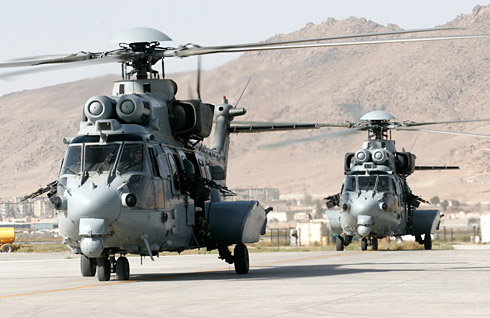WASHINGTON, Oct. 26, 2010 — It wasn’t long ago that Afghans living in the Helmand province were wary of police, largely because of their bad experiences with Taliban rulers. Today, however, Afghans are more open to relying on their own police force, and even tip them off to Taliban insurgents.
That was the message Marine Brig. Gen. Joseph Osterman delivered to reporters today via a video new briefing from Task Force Leatherneck in Regional Command Southwest, which he took command of in March.
Osterman’s troops are spread throughout Helmand, with some forces in Nimroz province’s Khash Rod area, he said. The three key districts in the Helmand River Valley for which he’s responsible are the highly populated Marja, Nawa and Garmsir.
The task force’s job is to improve competence and ability of Afghan National Security Forces. “To be quite frank with you, they’ve been doing very well,” the general said.
In the Sangin area, one of the biggest security challenges is around the district center, Osterman said, where troops are “expanding the security bubble” out from the district center into the upper Sangin Valley, and also to the west and east, as well as some down to the “southern green zone.”
Marja, which now has more than 300 police officers, is one area where Osterman sees quite a bit of progress.
While the task force is in the “hold” phase of security operations, they are beginning to see “literally thousands of people in the bazaars on Bazaar Day,” the general said. “We’re seeing a lot of freedom of movement on the roads with families moving about, you know, unescorted or anything like that. We’ve recently seen the governor and government official traveling by road from Lashkar Gah into Marja and back, unescorted.”
The police force in Marja did not exist even two months ago, he said. “Most of the people from Marja would tell you they would want nothing at all to do with police, and that was because they had such a terrible time with the police under the previous Taliban regime,” he said.
Recently, when a child was lost, the Afghans went to their own police officials rather than the U.S. military, and the child turned up fine, Osterman said.
“The Afghan government and the provincial government has made Marja their effort,” he said. “We have, obviously, the district governor in there. We’ve got a prosecutor in there. We’ve also got a director of education who has just recently gone out to help with the building of the Marja high school and the vocational center that we’re putting in there right now. So there are those governmental functions that are working well in Marja.”
Even insurgent incidents in Marja have dropped to about one per day, Osterman said, and mostly to small-arms fires. “We call them ’shoot and scoot,’ meaning it may be an insurgent, but they’ll just shoot a few rounds off to … try to get some attention, and then they move on,” he said. “So we’re in a very positive sense, seeing very few incidents that we would call troops in contact.”
Osterman’s Leatherneck team is mentoring and giving advice to the new police forces in all the districts, he said, for security and governance.
The general refers to two groups of Taliban: the “Big‑T” of leadership financiers and insurgents; the “Little‑T” of local residents who cooperate with Taliban.
Members of the Little‑T group, “for whatever reason, whether it be monetarily or for just vendettas or whatever it might be, decide to join the insurgency,” he said. “Some of these, particularly like in Marja, are left over from previous days.”
Another show of progress is how the Afghan people are conducting a system of neighborhood watches, Osterman said. People who otherwise might have joined the insurgency “are essentially reintegrating into their communities” to form local police and neighborhood watch-type programs that take issues of local concern, he said.
One of the biggest lessons learned so far centers on perception management, the general said. “The people truly are the prize in the counterinsurgency fight. And in fact, when you make the perception of something happening, then basically they expect that to happen and want you to live up to it.”
The way coalition troops apply lessons learned “has to be pretty sophisticated and can’t necessarily be a cookie cutter [approach] because of geographical differences, tribal differences, and time,” Osterman said. “Every three months or so I really see it as a different battlefield. So those are all factors that tie in to that.”
And, the general said, he’s seen that sophistication in the young servicemembers serving in Afghanistan.
“I really call it being a sophisticated Marine,” he said. “We have young troops out there who aren’t much more than 19 or 20 years old. They’re doing everything from teaching classes to helping with governance to working microeconomics, and it really is astounding to watch the kinds of things that they’re doing and what they’re capable of.”
Source:
U.S. Department of Defense
Office of the Assistant Secretary of Defense (Public Affairs)

 von
von 